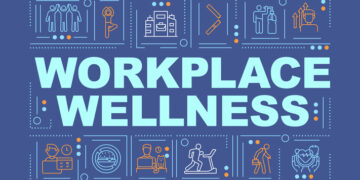Managing stress can become more difficult as you age. Here’s why, and what you can do about it.
Why Stress and Aging Feels Harder to Manage
Although coping with stress at any age can be challenging, as you get older you may find it feels like it’s become more difficult to manage stress–and it’s not your imagination. It can feel more difficult thanks to a number of reasons. For one, your body can’t physically deal with stressors as well as it could when you were younger. Consider your heart and lungs, for example. If you’re less healthy at your older age, these organs aren’t functioning as optimally as they once did, making it harder for you to bounce back after experiencing stress.
Also, chronic stress could lead to higher levels of the stress hormone cortisol in your body. Having excess cortisol levels can contribute to experiencing negative symptoms such as a weakened immune system, poor sleep, digestion problems, weight gain and issues with your memory.
 These symptoms, in turn, can snowball and make the negative effects of stress as you age even greater. If you experience sleep disturbances due to chronic stress, for example, then your body is missing out on the opportunity to heal. When we sleep, our bodies use this time to regenerate cells, allowing muscles and joints to rest and recuperate and the brain to work through mental processes. With poor sleep, you become mentally and physically less able to cope with stress and you may also experience depression and anxiety.
These symptoms, in turn, can snowball and make the negative effects of stress as you age even greater. If you experience sleep disturbances due to chronic stress, for example, then your body is missing out on the opportunity to heal. When we sleep, our bodies use this time to regenerate cells, allowing muscles and joints to rest and recuperate and the brain to work through mental processes. With poor sleep, you become mentally and physically less able to cope with stress and you may also experience depression and anxiety.
Consider, too, that outside of stress impacting your sleep patterns, your sleeping habits may also shift naturally as you’ve gotten older. You may be sleeping less, and with less rest, your tiredness may lead to the brain experiencing an uptick in stress hormones.
There is also the likelihood that the circumstances and stressors you’re dealing with as you age may be more complex than stressors you’ve had to face up until now–coping with the loss of loved ones, grappling with health challenges that can come with aging or helping your aging parents as they work through their twilight years, to name just a few scenarios you may be coping with.

Five ways to better cope with stress and aging
That said, while there are a number of factors that can make managing stress as you age difficult, there are ways to help mitigate the stress you experience. Work on a balanced lifestyle approach with these tactics to help make managing your stress levels easier on you at this stage of life.
Eat a healthy balanced diet
As you age, your appetite may have changed, or it may be impacted by medications you’re taking. If you’re feeling depressed, too, this can impact what you’re choosing to eat. If you’re regularly choosing to eat a poor diet, the lack of nutrition can negatively impact your immune system, reduce your energy levels and lead to weight gain and increase your risk of health conditions such as diabetes and heart disease. Focus on habits that’ll make it easy for you to stick to a balanced, healthy diet: whether that’s working with a dietitian or nutritionist, meal planning or using a meal-delivery program.
 Make getting a good night’s sleep a priority
Make getting a good night’s sleep a priority
Develop good sleep hygiene habits if you don’t already have a routine in place. This can include avoiding screen time at night, making your bedroom a haven for sleeping (this means not doing work on your laptop or smartphone in bed!) and finding the practices that help you feel sleepy (whether that’s drinking an herbal tea in the evening, doing a sleep meditation or trying a natural remedy such as taking melatonin).
Live an active lifestyle
Being physically and mentally fit can help you better cope with stress. Aim for a minimum of 150 minutes per week of moderate activity. It may help to keep in mind that being active doesn’t mean having to find time for an intense workout–moderate activity includes walking your dog, gardening and even day-to-day housework.
 Maintain an active social life
Maintain an active social life
Keeping in touch with your friends and tapped into your community contributes to your ability to better cope with stress. Make time to see friends in real life, even if just for a quick coffee. Look into community groups within your neighbourhood–such as book clubs or volunteer opportunities for causes that are important to you.
Start practicing mindfulness
If you haven’t already started a mindfulness practice, now is a great time to start. Research has shown that living in the moment and quieting the mind can help alleviate feelings of depression and anxiety and help one better cope with stress. Try apps such as Calm or Headspace (you can aso find meditation classes on platforms such as Peloton). Remember, too, that practicing mindfulness doesn’t only mean sitting quietly with your eyes closed. You may find writing in a gratitude journal, walking through the woods or meditative hobbies such as knitting or colouring may resonate with you more than meditation.


 Make getting a good night’s sleep a priority
Make getting a good night’s sleep a priority Maintain an active social life
Maintain an active social life













